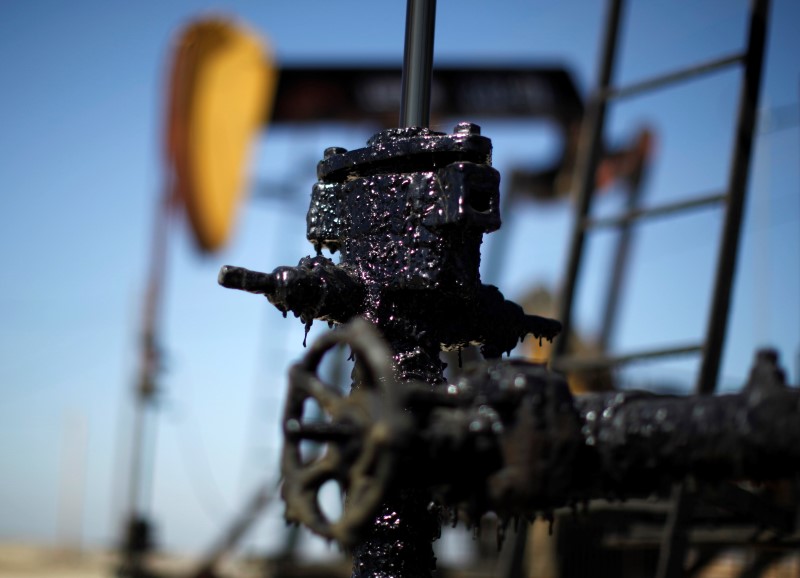Investing.com - Oil bears have a rather unlikely ally: Saudi Arabia.
The world’s top oil exporter, facing global outrage over suspicions it engineered the murder of a journalist critical of the kingdom’s heir, offered on Tuesday to pump more crude and at a faster rate amid jitters of a supply squeeze from export sanctions against Iran beginning in two weeks.
The new Saudi stance on supply, along with a fifth-weekly build in U.S. crude stockpiles anticipated for last week and a global stock market rout, hammered oil prices down nearly 5% on the day.
U.S. West Texas Intermediate (WTI) crude settled at $66.43 a barrel, down $2.93, or 4.2%, for its biggest daily loss in three months. It had earlier hit a session low of $65.97, less than a dollar from oil bears' target of $65.
Brent, the global benchmark for oil, was at $76.61 a barrel by 2:59 PM ET (18:59 GMT), down $3.22, or 4%.
Just three weeks ago, WTI hit November 2014 highs of $76.47 while Brent soared to four-year highs of $86.73.
In early September, OPEC and industry sources said Saudi Arabia was trying to keep oil at between $70 and $80 per barrel, partly to maximize revenue.
But on Tuesday, the kingdom seemed more concerned about providing the market as much oil as necessary and repairing its battered image in the eyes of the world.
Saudi Arabia was a nation "in crisis" after the "abhorrent" killing of journalist Jamal Khashoggi, Energy Minister Khalid al-Falih told the Future Investment Initiative conference in the kingdom that many Western business leaders and officials had skipped to show their displeasure with Riyadh and Crown Prince Mohammad bin Salman.
Falih later told reporters that Saudi Arabia “will decide if there are any disruptions from supply, especially with the Iran sanctions looming.”
"Then we will continue with the mindset we have now, which is to meet any demand that materializes to ensure customers are satisfied,” he added.
It was a remarkable about-turn by a minister who exactly a month ago had rebuffed U.S. President Donald Trump’s calls for more Saudi output to cool crude prices rallying then to four-year highs on fears of a supply squeeze from the Iranian sanctions.
“I do not influence prices,” Falih said then.
